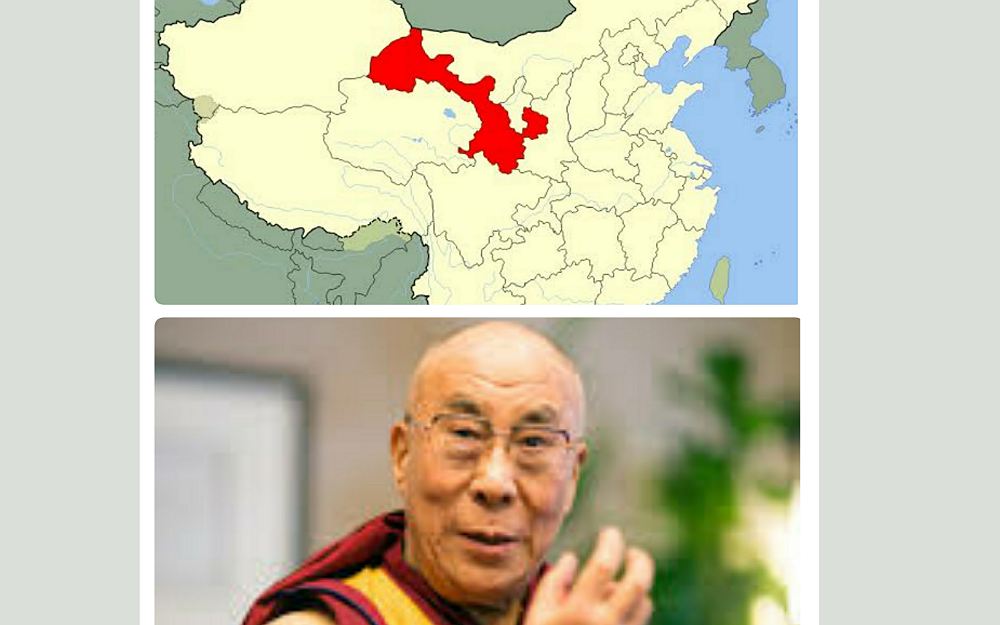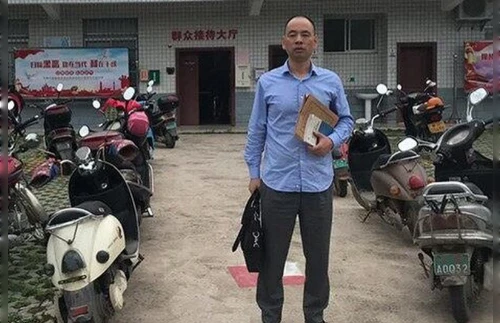Richard Fenney
Authorities in northwestern China’s Gansu province have detained three Tibetans, including a painter of traditional religious art, apparently for sharing politically sensitive information on the social-media messaging platform WeChat, a Tibetan advocacy group said on Tuesday.

The three were taken into custody in Sangchu (in Chinese, Xiahe) county in Gansu’s Kanlho (Gannan) Tibetan Autonomous Prefecture just days ahead of the 30th anniversary of the Dec. 10, 1989 awarding of the Nobel Peace Prize to exiled spiritual leader the Dalai Lama.
Citing exile Tibetan sources with contacts in the region, the Washington, D.C.-based International Campaign for Tibet identified two of those detained as Tsegan, in his mid-30s, and thangka painter Lubum Dorjee. The name of the third man held is still unknown, ICT said.
Notices circulated by Chinese government departments in Kanlho earlier this year had threatened closer police scrutiny of messages shared on WeChat and warned chat group members not to publish “illegal information” or “spread rumors,” ICT said.
“Such opaque language can be used by Chinese authorities to define as a ‘crime’ almost any expression of Tibetan cultural or religious identity, reference to the Dalai Lama or his teachings, or mild statement of opinion,” the rights group said.
Regarded by Chinese leaders as a dangerous separatist, the Dalai Lama fled Tibet into exile in India in the midst of a failed 1959 national uprising against Chinese rule, and the sharing of the Dalai Lama’s photo or teachings or public celebrations of his birthday have been harshly punished in the past.
Cash awards for informers
In July, a Tibetan resident of western China’s Sichuan province was taken into custody for sharing a photo of the Dalai Lama on WeChat, a local source told RFA in an earlier report.
Rinso, a resident of Thangkor township’s Village No. 3 in Dzoege (Ruo’ergai) county, a part of Tibet’s historical eastern region of Amdo, was released on July 16 after being held for 10 days, the source said, speaking on condition of anonymity.
Sources have told RFA that Chinese authorities in Tibet now offer cash awards of as much as 300,000 yuan (U.S. $42,582) for information leading to the arrests of social-media users deemed disloyal to China.
Behaviors specified as illegal include online activities aimed at “attempting to overthrow [China’s] socialist system,” “advocating extremism,” and “defaming the People’s Republic of China,” according to a notice issued on Feb. 28 by three government departments of China’s Tibet Autonomous Region.
Also banned are online expressions of support for the Dalai Lama’s Middle Way Policy, which calls for greater autonomy for Tibet while acknowledging Beijing’s sovereignty over Tibetan areas now part of China.
Authorities in Tibetan areas of China frequently monitor online discussions and search mobile phones for what they consider politically sensitive content, and foreign news broadcasts are heavily restricted.
Copyright © 1998-2016, RFA. Used with the permission of Radio Free Asia, 2025 M St. NW, Suite 300, Washington DC 20036. https://www.rfa.org
Chinese Rights Lawyer Lu Siwei Sentenced to 11 Months in Prison
After Inhaling Deodorant Spray in TikTok Challenge,Eight Years Old Brazilian Girl Dies
Regular Exercise Keeps Your Pet Healthy
How to Report Child Abuse in India
Sri Lankan Police Pull Plug on Vietnamese Monk’s Tour Until He Changes Visa
North Korean Troops May Enter Ukraine Doon,Kyiv Warns
First Time Parents At Nearly 100 Years of Age
Home Made Food for Pets
humanitynewsworld.com needs You Tube Channel Collaborator
For Latest Updates
From Our Archive
We Do Believe that Digital Publication is the Best Way for Communication and Spreading Awareness















